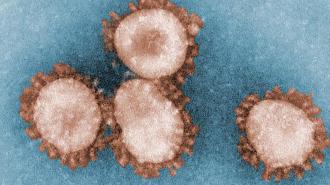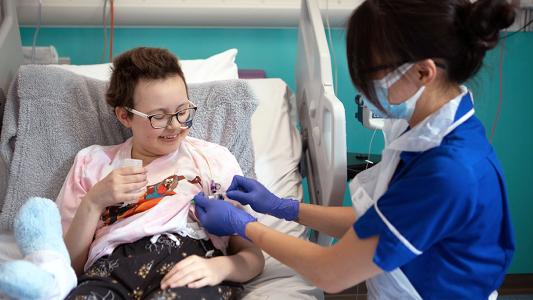University of British Columbia researchers have identified a coronavirus antiviral candidate, which in lab experiments halted infection by multiple variants of SARS-CoV-2 and a totally different coronavirus — one of the culprits behind the common cold.
Their compound is a “compelling target” for developing “broad-spectrum” anti-coronavirus therapies, the researchers wrote in their study, published in Molecular Biomedicine.
The aim of such drugs would be to stop not only the spiky viruses we are facing now, but also new coronaviruses that may arise in the future (a horrifying scenario that is now considered almost inevitable by many experts).
Researchers have identified a coronavirus antiviral candidate which in lab experiments halted infection by multiple variants of SARS-CoV-2 and a common cold virus.
“Beyond COVID-19, there are many different types of coronaviruses that can cause serious and sometimes fatal disease, and even more are likely to emerge in the future,” said Yossef Av-Gay, a professor of infectious disease at UBC and the study’s senior author.
“We’re working toward treatments that can be broadly effective against all types of coronaviruses so that we can respond to not only current health challenges, but also future pandemic threats. Identifying this compound and the pathway by which it works to stop viruses is an important step in that direction.”
What are antivirals? Antivirals are compounds designed to break some part of the virus replication cycle — preventing an infection from taking hold or slowing it down so that the immune system can eliminate it.
As viruses contain none of their own machinery for replication, they need to hijack a host’s cells to make due. This is far more complex than “latch on, wrench cells open, replicate, and leave.” There’s a myriad of steps to each one of those processes.
But those complexities, as any engineer could tell you, also represent places where things could go wrong (for the virus). The goal of most antivirals is to mess things up, “to slow viral replication down to allow the immune system to come in and do what it needs to do,” as Ashley Brown, program director of the Antiviral Pharmacodynamics Laboratory at the University of Florida, previously told me.
Antivirals are compounds designed to break some part of the virus replication cycle — and are notoriously difficult to develop.
Unfortunately, antivirals are also notoriously difficult to make, and they often only work for one particular virus. If a virus mutates a lot — like flu or HIV or SARS-CoV-2 — antivirals can become outmoded quickly.
Coming for the crown: To find a compound capable of stopping multiple types of coronavirus, the UBC team looked not for targets on the virus itself, which could vary virus to virus, and across variants of the same virus, but to the most stable part of the replication cycle: human cells.
Because viruses need our precious cellular machinery to replicate, they rely on human proteins to multiply. Coronaviruses — a family of viruses that cause COVID-19, SARS, MERS, and the common cold — use an enzyme called GSK3 beta present in all human cells.
“We found that coronaviruses hijack this human enzyme and use it to edit the protein that packs its genetic material,” Tirosh Shapira, a UBC postdoc fellow and the study’s first author, said.
To find their compound, the team screened a library of nearly a hundred GSK3 inhibitors from Japan’s Takeda Pharmaceutical Company. They were tested in cell and tissue models against SARS-CoV-2 and a common cold coronavirus, HCoV-229E.
According to the researchers, multiple drugs showed the ability to stop the coronaviruses and have low toxicity for human cells. But one in particular, called T-1686568, stopped SARS-CoV-2 and the cold virus, which the researchers considered a sign of a broadly-acting compound.
“While these are early days, it’s encouraging to see broad levels of effectiveness in tissue models,” Shapira said.
To find a compound capable of stopping multiple coronaviruses, the UBC team looked to the most stable part of the replication cycle: human cells.
“Future-proof treatments”: As with all medicines, further research will be needed to ensure they are safe and effective in humans, not just a Petri dish. But the UBC team is already looking ahead to how their candidate may help protect against multiple coronaviruses and even other pathogens that use the same enzyme.
“We’re not just fighting SARS-CoV-2, we’re looking ahead at what’s next,” Shapira says.
“We’re focused on identifying future-proof treatments for variants and viruses that emerge down the road and rely on the same cellular mechanisms to grow and infect.”
We’d love to hear from you! If you have a comment about this article or if you have a tip for a future Freethink story, please email us at [email protected].






